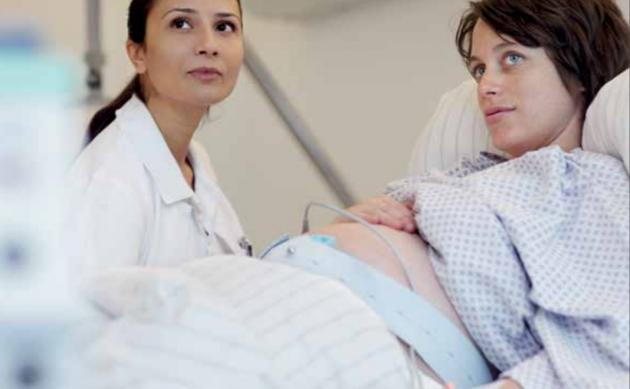Roche Diagnostics Korea said its blood test for a pregnancy complication called preeclampsia had gained national health insurance coverage since Friday.
Preeclampsia, otherwise known as toxemia or pregnancy-induced hypertension (PIH), is characterized by high blood pressure and protein in a woman’s urine at around 20 weeks in pregnancy.

The disease can cause damage to organ systems such as the liver and kidney, and if left untreated, can lead to serious – and sometimes fatal – complications for both the mother and baby.
Management of preeclampsia in Korea has been found lackluster, according to a survey conducted on 500 pregnant women by the company. The survey found eight out of 10 experienced preeclampsia symptoms but about 40 percent received no treatment, thinking it was a normal symptom of pregnancy, the company said.
Roche’s Elecsys Preeclampsia (sFlt-1/PlGF) test detects whether pregnant women have preeclampsia through a simple blood test that measures the ratio of soluble fms-like tyrosine kinase-1 (SFlt-1) and placental growth factor (PlGF), the company said.
Research showed the test was able to predict preeclampsia in pregnant women at a high rate with a rule-in positive predictive value of 38.6 percent and a rule-out negative predictive value at 99.1 percent.
The insurance coverage will apply to women around 20 to 34 weeks along in pregnancy with a previous diagnosis of preeclampsia or a family history of the disease. Also benefitting from the coverage will be pregnant mothers expecting twins or a plural pregnancy as well as for those with high-blood pressure, albuminuria, delayed fetal growth, or liver enzyme elevation.
Women who meet the criteria will pay half the price for the test, the company said.
“We are delighted that more mothers will be able to predict and diagnose preeclampsia at a reasonable price with the recent insurance coverage,” said Roche Diagnostics Korea CEO Richard Yiu. “Roche Diagnostics Korea will continue to try to provide solutions that help OBGYN specialists and medical staffs accurately diagnose and manage preeclampsia, thereby ultimately reducing social and economic costs.”

